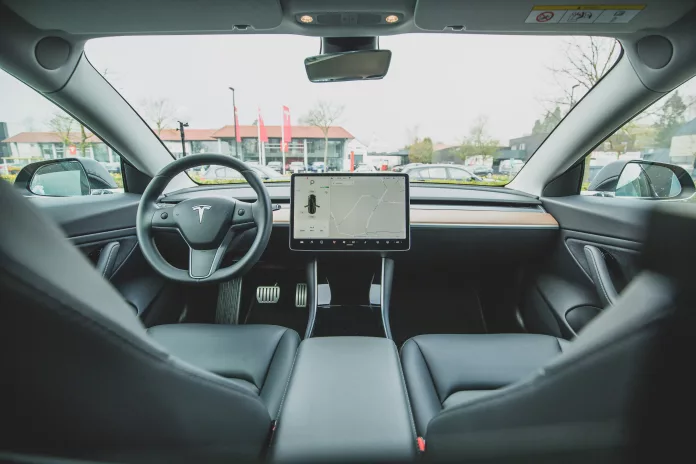During Tesla‘s recent shareholder conference call, an intriguing prospect was brought to light, one that hadn’t been prominently mentioned by Elon Musk and his team before. The focal point of this revelation was the untapped potential of Tesla’s AI technology and how it could transcend its current automotive applications.
Unlocking New Possibilities with Tesla’s AI
One question initiated a particularly insightful discussion: How could Tesla’s position as an AI powerhouse in the physical world be leveraged beyond its vehicles? A significant pause preceded Ashok Elluswamy’s thoughts on the matter, hinting at Tesla’s robotaxis operating around 50 hours a week, an estimate affirmed by Musk. Elluswamy then hinted at broader applications for Tesla’s onboard AI capabilities.
Elluswamy mentioned other computational tasks already in play by various companies, such as processing large neural networks that require substantial computational power. He suggested utilizing Tesla cars’ dormant compute capabilities—resources already accounted for—rather than allowing them to remain underused. This approach would maximize the value of their embedded advanced hardware.
The Amazon Web Services Analogy
Elaborating on this idea, I couldn’t help but recall the defining moment for Amazon Web Services (AWS). The common misconception was that Amazon’s online retail platform was the primary source of its profitability. However, it turned out that AWS, a side venture that capitalized on Amazon’s surplus computing power, was the real gold mine. Musk drew a parallel between AWS’s utilization of idle compute and Tesla’s prospective opportunity.
For Amazon, repurposing their over-provisioned compute capacity became a groundbreaking strategy, eventually forming the backbone of a large part of today’s internet. Tesla, too, might be on the cusp of a similar revelation: harnessing the dormant computing potential of millions of vehicles that otherwise idle the majority of the time.
Tesla’s Strategic Vision for Distributed Computing
This concept is more than a mere discussion point; it could signify an entirely new dimension to Tesla’s business model. If the on-road Tesla fleet evolves as expected, it may represent a vast reservoir of underutilized computing power, ripe for alternative applications.
It’s fascinating to consider this comparison with AWS and how Tesla could invent resourceful ways to monetize the latent power and cooling capabilities intrinsic to their distributed vehicle network. Internal excitement was palpable as Tesla executives began to “nerd out” over the potential during the call. They appear geared up for what could be a transformative venture, possibly mirroring the financial windfall that AWS became for Amazon.
Stepping into this new frontier, Tesla might not only innovate within the realm of transportation but also pioneer an ingenious economic model, capitalizing on their expansive, yet intermittently used, AI capabilities.


























